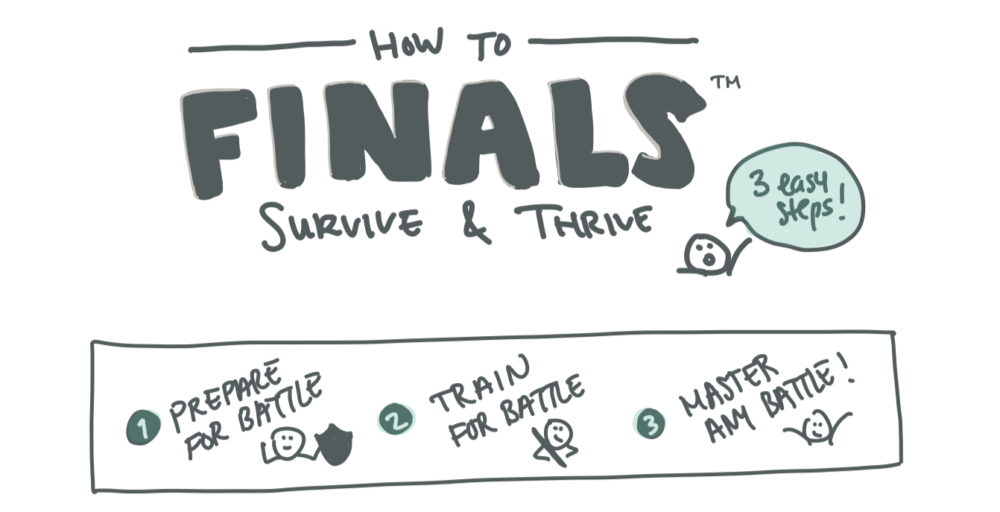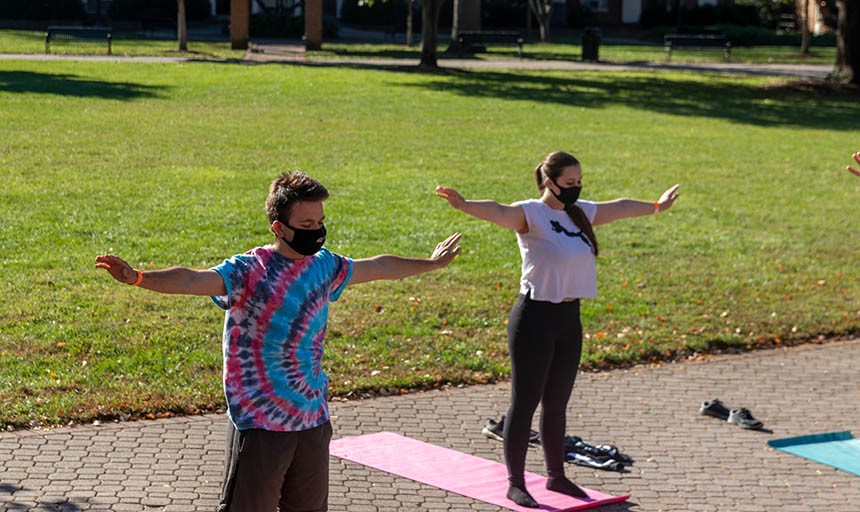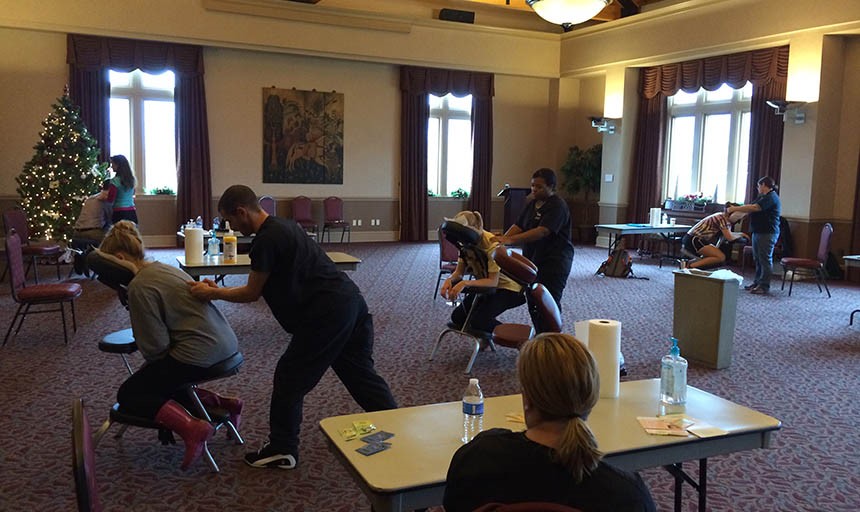
© MIT ADMISSIONS
It is that time of the year again: Finals! Albeit much earlier in the year, next week marks the finish line for the fall semester. This is both a very exciting and stressful time because you are so close, but you may have so much more left to do.
A few days ago, we reached out to students on Instagram to ask how they prepared for finals. We received some great advice such as “Prioritizing sleep and eating over late-night study cramming” and “Organizing printed notes and making physical notecards”.
Keep reading for more helpful advice about stress management and how to succeed during finals next week! College-wide events:
College-wide events:

Yoga for Stress Relief
There will be an online via zoom and in person yoga session.
When: Monday November 16th, 2020
Time: 3:00 PM to 4:00
Where: Bast 138 and on zoom
To learn more contact Colleen Quigley, cquigley@roanoke.edu.

In the Moment: Creative Practices for Medication and Wellness
Amy Herzel, a visual artist whose work is focused on meditative practice is hosting a workshop about using creative practices as a method of meditation.
When: Saturday November 21st, 2020
Time: 2:00 to 3:00 PM
Where: Online via Zoom (will be recorded)
Contact: Lacey Leonard, leonard@roanoke.edu (540-354-6282) to register, for questions, or if there is difficulty joining. Each registered user will receive a kit.

Roanoke College Wellness
There are still some spots for chair massages for students provided by Health Services. You can find open slots and sign up here .
College Resources
As always our student health and counseling services are still available to all students through telemedicine services.
Students can drop into counseling for a short duration through Let’s Talk on Tuesdays from 3:00 PM to 4:00 PM, Thursdays 12:00 PM to 1:00 PM, and Fridays 2:00 PM and 4:00 PM.
If you’re interested in talking in a group about stress or anxiety, Love Your Selfie is on Mondays via Zoom from 4:00 PM to 5:00 PM.
Other Organizations and the college may also have events that pop up this week or the next so watch out for those!

Below are some tips on completing projects and how to study to avoid stress and turn in quality work.
Study Schedules
The best way to make sure you have adequate time to start and complete all of the assignments coming up is to plan.
- Marking down all due dates for finals assignments/projects and dates and times of final exams.
- Schedule times to study or complete parts of the project and make sure to to the schedule. Getting in the habit makes sure that you’re not waiting until the last minute.
- During scheduled times make a plan on what you want to accomplish. Breaking large assignments or studying for finals in smaller sections, not only reduces stress but for studying, it makes it easier to remember.
- For studying, always review what you studied the day before. If on day one, you studied chapters 1 and 2, on day two, you would quickly review chapters 1 and 2 but focus on the next chapters.
- Make sure that you start early enough so you have ample time.
Take Breaks
The best rule to follow for work/life balance is 80/20 where 80% is focused on academics and 20% is focused on having fun. Studying for long periods of time can be draining and isn’t efficient in the long run. Breaks can be as simple as meditating or going for a walk. Just remember to come back to studying when you’re mentally prepared.
Group Sessions
This doesn’t work for everyone but sometimes it can be really helpful to talk with other classmates for clarification. This can also apply to professors. It’s better to ask before to make sure you’re prepared for the test. In addition, being able to explain material to someone else and having them understand it is a good strategy for understanding and remembering the material.
Study Strategies
Using a variety of different studying strategies such as retrieval, elaboration, organizational, and rehearsal strategies makes it easier to remember and understand the material.
- Retrieval- Testing yourself is a great way of making sure you understand and remember material. This can be answering questions from textbooks, using flashcards, practicing using formulas and solving problems, or recreating charts/timelines/and diagrams from memory.
- Elaboration- Linking new information with information you already know or creating learning mnemonics like acronyms and analogies.
- Organizational- Making your own charts and graphs to visualize information.
- Rehearsal-Repeating information out loud or repeatedly writing information. It works better if paired to strategies listed above rather than if used by itself.
 These are just some tips and not all of these work for everyone. This is also by no means a comprehensive list. Starting early will help you figure out which strategies work best for you. Remember the psychology department is cheering you on!
These are just some tips and not all of these work for everyone. This is also by no means a comprehensive list. Starting early will help you figure out which strategies work best for you. Remember the psychology department is cheering you on!
Good luck with finals and be sure to revel in the two-month break that follows!
.
.
.